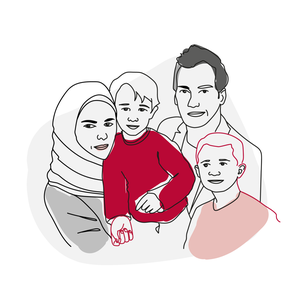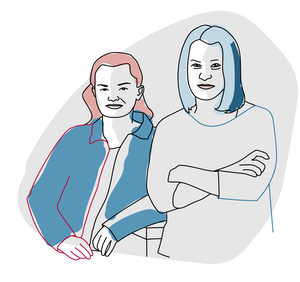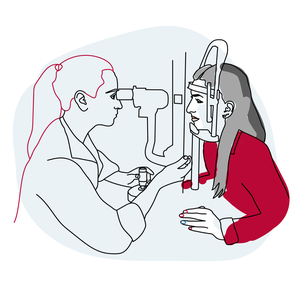The Swedish Migration Agency answers: what financial support is given to people seeking protection in Sweden?
People seeking protection in Sweden are entitled to different types of allowances and subsidies from the Swedish Migration Agency, for example, an allowance to cover their everyday expenses or to buy a pram. How much money is actually paid out and what expenses is that money to cover? This is explained in this part of The Swedish Migration Agency answers.
Please note that parts of this text concerning accommodation for asylum seekers may be affected by future changes.
An asylum seeker is a person who has submitted an application for protection in Sweden and is waiting for a decision from the Swedish Migration Agency. Waiting times can vary and sometimes applicants’ needs for help and financial support change during the waiting period. The financial support asylum seekers are entitled to is regulated in the Act on Reception of Asylum Seekers, hereinafter abbreviated LMA.
Persons who have fled Ukraine are also covered by LMA
Previously, LMA only applied to asylum seekers but when the Temporary Protection Directive was activated in conjunction with the invasion of Ukraine, it was debated whether LMA was to apply for this group as well.
In a legal sense, there is a difference between being an asylum seeker and being covered by the Temporary Protection Directive. In simple terms, people covered by the Temporary Protection Directive are entitled to financial support for as long as their residence permit is valid, while asylum seekers are usually discharged from the reception system shortly after they have been granted and given a residence permit. The amounts of financial support paid out are the same for both asylum seekers and persons covered by the Temporary Protection Directive.
The Swedish Migration Agency asks applicants about their financial circumstances
When a person applies for protection, the Swedish Migration Agency investigates how much money or other assets they have, as this determines whether they are entitled to financial support and, if so, what type of allowance. Applicants must also inform the Swedish Migration Agency if their circumstances change at a later date, for example, if they find a job and start earning their own money. In that case, the Swedish Migration Agency will reassess the applicant's right to financial support.
As well as affecting allowances, having a job may mean you have to start paying for accommodation, if you live in the accommodation of the Migration Acency of the municipality. If the applicant has a job, they can still stay in the accommodation but they may have to pay for it.
Not only the applicant's own financial circumstances are of significance. If the applicant is living together with a partner or spouse, the Swedish Migration Agency will take that person’s income and assets into account as well.
Here you can read more about how a partner's income affects the right to financial support
What allowances can be applied for?
There are three different types of allowances for people seeking protection: daily allowance, special allowance and housing allowance. Each allowance is described in more detail below.
Daily allowance
In the first instance, applicants must support themselves. If an applicant lives with a partner or spouse, that person's assets will be included in the assessment since cohabiting partners and spouses are obliged to provide for each other. If an applicant has no assets at all, they will be given a daily allowance to cover their everyday expenses. The size of the daily allowance varies depending on whether you live in Swedish Migration Agency or municipal accommodation where food is included or not included. Another factor that affects the amount of daily allowance you receive is whether you are living with a spouse or cohabiting partner.
A single adult living in accommodation where food is included receives SEK 24 per day, or SEK 71 per day if food is not included. If you live together with your partner or spouse , you will receive SEK 19 or SEK 61 per day and person.
Here you can read more about the different amounts of daily allowance
In addition to food, the daily allowance must cover the cost of clothing and shoes, medical care and medicines, dental care, hygiene items, other consumables and leisure activities.
Special grant
You can apply for a special grant to cover pressing needs, for example, glasses, a pram or winter clothes. The grant covers only the cheapest option available.
You can also get an allowance for travel expenses that arise in connection with being summoned to the Swedish Migration Agency to attend an asylum interview, meet your case officer, or similar.
Housing allowance
A person seeking protection who has found work in a place where the Swedish Migration Agency does not have any accommodation to offer can apply for housing allowance. The allowance is calculated per month. If the asylum seeker is single, the amount is SEK 350. If a family lives together, they can receive a total of SEK 850 in housing allowance per month. The Swedish Migration Agency will only pay out housing allowance for as long as the employment continues.
How do applicants receive the money?
When a person is registered in the Swedish Migration Agency's reception system, they are given a bank card linked to an account into which the financial support is paid. Only the Swedish Migration Agency can pay money into that account. The applicant cannot make any transfers nor receive money from anyone else. However, the card can be used to withdraw cash from an ATM or in a shop.
The Swedish Migration Agency may reduce the daily allowance
In some circumstances, the Swedish Migration Agency may decide not to pay out the full amount of daily allowance. The amount may be reduced if the applicant:
- does not cooperate in proving their identity
- obstructs the investigation of their asylum application by avoiding the authorities
- does not cooperate in preparing for their return home if they have received a decision on refusal of entry or deportation.
When does the right to financial support end?
If the asylum seeker is granted a residence permit in Sweden, their right to support from the Swedish Migration Agency will end. This happens either after the person has been received in a municipality or one month after they were granted a residence permit.
The right to financial support also ceases if the asylum seeker has received a decision on refusal of entry or expulsion and the decision has taken effect – i.e. can no longer be appealed – or when the period for voluntary departure has expired. This applies to adults who do not live with minors. Families with children have the right to retain their financial support until they leave Sweden or are discharged from the reception system for some other reason.
People covered by the Temporary Protection Directive retain their right to financial support even after they have been granted a residence permit. The financial support ends if they leave Sweden, either to return to Ukraine or to go another country.
Reduced fees for healthcare appointments and medicines
People covered by LMA and who have an LMA card, or a residence card stating they are covered by LMA, pay SEK 50 for most medicines prescribed by a doctor. The applicant does not receive money from the Swedish Migration Agency to pay for their medicine; they pay the subsidised price direct to the pharmacy. The pharmacy that sold the medicines at a lower price then applies for compensation from the Swedish Migration Agency. This is called state compensation and is a completely separate part of the Swedish Migration Agency's activities.
A person covered by LMA also pays a lower fee for medical care and emergency dental care. The payment procedure is the same as that for medicines.
How are the amounts of allowance determined?
FMA stands for the Reception of Asylum Seekers Ordinance which is the regulation that stipulates the various amounts. The amounts were decided by the government and they have not been changed since the LMA was introduced in 1994.
Here you will find the Reception of Asylum Seekers Ordinance
Charities
People seeking protection may be in need of more help and support than the Swedish Migration Agency can provide. There are many charity organisations in Sweden to turn to, for example, Save the Children, the Red Cross and the Church of Sweden.
This page provides a list of charity organisations
Upcoming changes
The Government's proposal for people from Ukraine
The Government has proposed that people who have been granted a residence permit under the Temporary Protection Directive are to be given better living conditions in Sweden. For example, they should be able to be registered in the population register earlier than is currently the case. When they become registered, they are no longer covered by the LMA but instead by the municipality's responsibility under the Social Services Act. Those who work should also have access to work-based parental benefit and temporary parental benefit. The Government proposes that these changes enter into force on 1 November 2024.
Here you can read the proposal (in Swedish) External link, opens in new window.
External link, opens in new window.
Some examples of different families’ financial circumstances

Scenario A
Tariq and Salma are from Iraq and have applied for asylum in Sweden with their two children. They are living in Swedish Migration Agency accommodation while waiting for their decision and are receiving a daily allowance since they have no income or other assets of their own. Food is included at their accommodation so they are receiving the lower level of daily allowance. For Tariq and Salma, this means SEK 19 each per day. Since their children are under the age of 17, they are receiving SEK 12 each per day. In total, the family is receiving SEK 62 per day. That money must cover everything the family needs apart from food and accommodation, for example, clothing, shoes and hygiene items.

Scenario B
When Russia invaded Ukraine, Iryna and her 18-year-old daughter Anastasia fled to Sweden to seek refuge. They were granted residence permits under the Temporary Protection Directive and were provided with accommodation from the Swedish Migration Agency and the municipality. Food is not included at their accommodation and therefore they are receiving the higher level of daily allowance: SEK 71 per day for Iryna and SEK 61 per day for Anastasia.
Today, they have both found jobs. Since an income affects the right to financial support, they were obliged to tell the Swedish Migration Agency that they have started working and the daily allowance is no longer being paid out. Iryna and Anastasia are also obliged to pay a fee for their accommodation, SEK 2,100 each, since they are living in municipal accommodation but both have their own income.

Scenario C
Salma has eyesight problems and probably needs glasses, an expense the daily allowance cannot cover. She therefore applies for a special allowance from the Swedish Migration Agency. Her application is approved and the decision states which optician she should make an appointment with for an eye test. After the visit, the optician sends an invoice to the Swedish Migration Agency, so no money is paid out directly to Salma. Since the eye test showed that Salma needs glasses, the invoice will include both the cost of the eye test and the glasses.